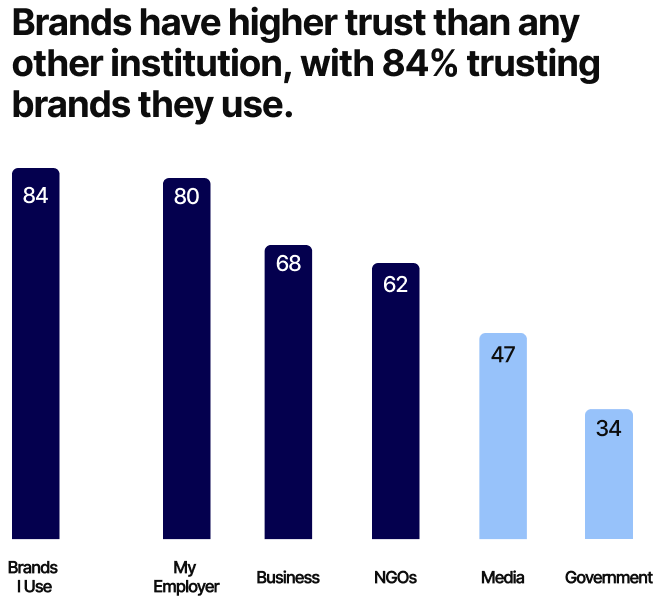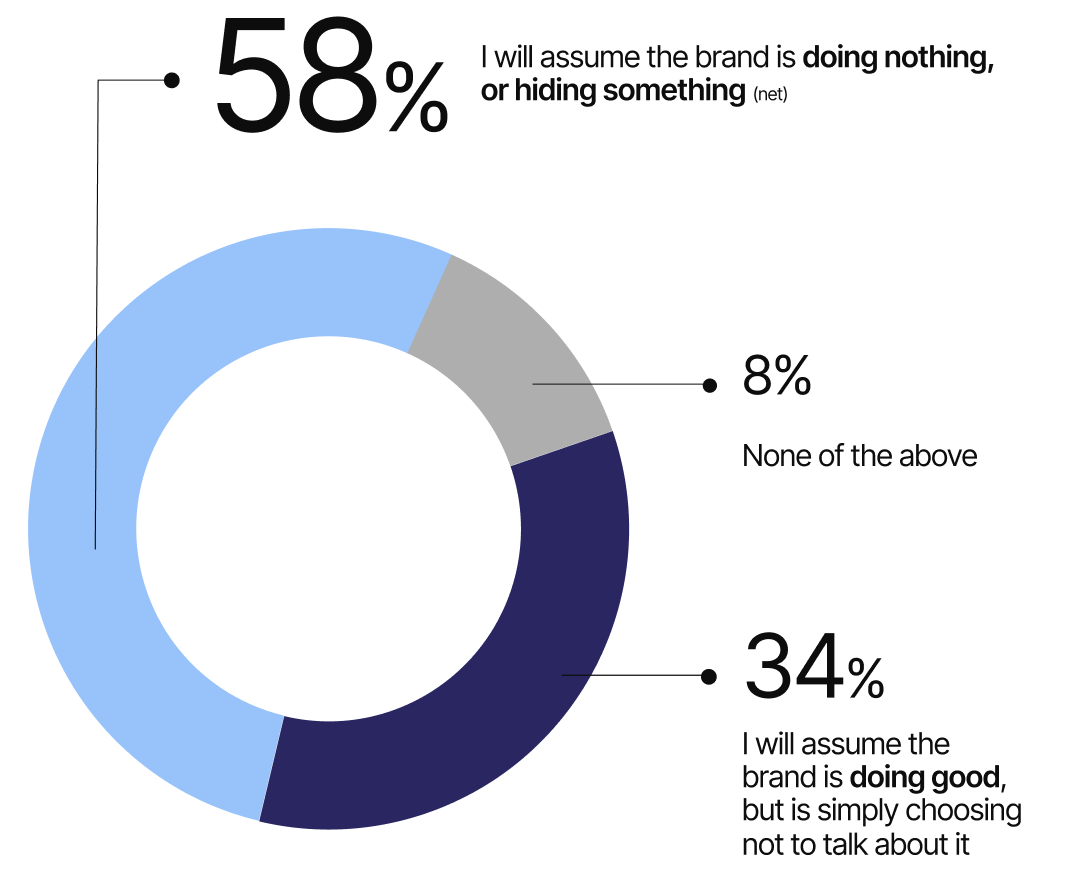- Global (EN)
- Africa (EN)
- Australia (EN)
- Belgium (EN)
- Brasil (PT)
- Canada (EN)
- Canada (FR)
- China (CN)
- France (FR)
- Germany (DE)
- Germany (EN)
- Hong Kong, China (EN)
- India (EN)
- Indonesia (EN)
- Ireland (EN)
- Italy (IT)
- Italy (EN)
- Japan (JP)
- Korea (KR)
- Latin America (ES)
- Malaysia (EN)
- Middle East (EN)
- Netherlands (EN)
- Spain (ES)
- UK (EN)
- Global (EN)
- Africa (EN)
- Australia (EN)
- Belgium (EN)
- Brasil (PT)
- Canada (EN)
- Canada (FR)
- China (CN)
- France (FR)
- Germany (DE)
- Germany (EN)
- Hong Kong, China (EN)
- India (EN)
- Indonesia (EN)
- Ireland (EN)
- Italy (IT)
- Italy (EN)
- Japan (JP)
- Korea (KR)
- Latin America (ES)
- Malaysia (EN)
- Middle East (EN)
- Netherlands (EN)
- Spain (ES)
- UK (EN)
.
In a world where the threat of recession, geopolitical tensions, and a growing sense of grievance against institutions permeate cultural forces, the 2025 Edelman Trust Barometer Special Report: Brand Trust, From We to Me reveals a shifting landscape for brands. While other institutions are distant in moments of distress, consumers depend on brands for stability and visibility. With financial distress becoming an ongoing norm, most South Africans are haunted by concerns about the rising costs of living – particularly the impact of tariffs and trade wars. In these turbulent times, locals not only trust domestic brands more over foreign brands, but they also look to brands to stabilize their reality and make them feel happy, confident, inspired and calm.

Brands Fill the Institutional Trust Void
The majority of South Africans (84%) trust the brands they use to do what is right, outpacing institutional trust in government, media, NGOs and business. This trend has been consistent over the last three years, with trust in brands in general rising from a modest 53% in 2022 to 72% in 2025. Moreover, when it comes to brands consumers buy or use – trust is among the top considerations.
Dual Brand Responsibility: Do Good, Make Me Feel Good
For South Africans, brands are more than commercial entities – they hold the dual responsibility of doing good and making consumers feel good. Brands that authentically reflect today’s culture are more effective in earning trust among consumers in an increasingly tumultuous landscape.

Silence is Not Safety
While brands face a complicated and diverse terrain on issues that call for engagement such as racial equality and climate change, brand voices are not only needed but also expected. Over half of South Africans (58%) will assume the brand is doing nothing or hiding something if it is silent on pressing societal issues, with 62% saying they would be less likely to buy from a brand that ignores its obligation to address societal matters.
Be An Active Brand – Meet Us Where We Are
Globally, over the last five years, brands have been thrust with heightened responsibility as a result of heightened expectations. Over the past 5 years, it’s become more important that brands provide optimism, community, and education. Brands on the right side of this are meeting their customers where they are in this new era of earned meets AI-based platforms. 65% of South Africans are using generative AI-based platforms, while 92% of them use it for shopping in one way or another. Peer voices still hold considerable weight in purchase decisions, so too do individual experiences with the brand.
Discover the Trust insights shaping brands in 2025
A full look at this year’s findings — and what they mean for businesses, leaders, and society.

From brands that promise to brands that participate
Purpose is personal
Purpose should speak to real human needs rather than vague social goals. In this time of tumult, brand leadership means bringing stability, optimism, and community into consumer lives.
Brands fill the trust void
Brands have earned trust while it stays stagnant for institutions. While trust is a powerful band differentiator, it also comes with greater responsibilities. Brands must act in my world and the world to maintain their edge.
Silence is not a safe play
Playing it safe by staying silent feels low risk but comes with its own dangers. Inaction invites commoditization. To act with intention, map out the dimensions of your brands obligation to the issue at hand.
Active brands participate with me
To meet consumers on their terms, brands must be active in culture and in their world. Local voices and earned media, feeding into AI, are key places to start.
Discover the Trust insights shaping brands in 2025
A full look at this year’s findings — and what they mean for businesses, leaders, and society.
Methodology
The 2025 Edelman Trust Barometer Special Report: Brand Trust, From We to Me is in its 7th year. The research was produced by the Edelman Trust Institute and consists of 30-minute online interviews conducted between April 24-May 5, 2025.
15,000
Respondents
15
Countries
1,000+
Respondents / Country



